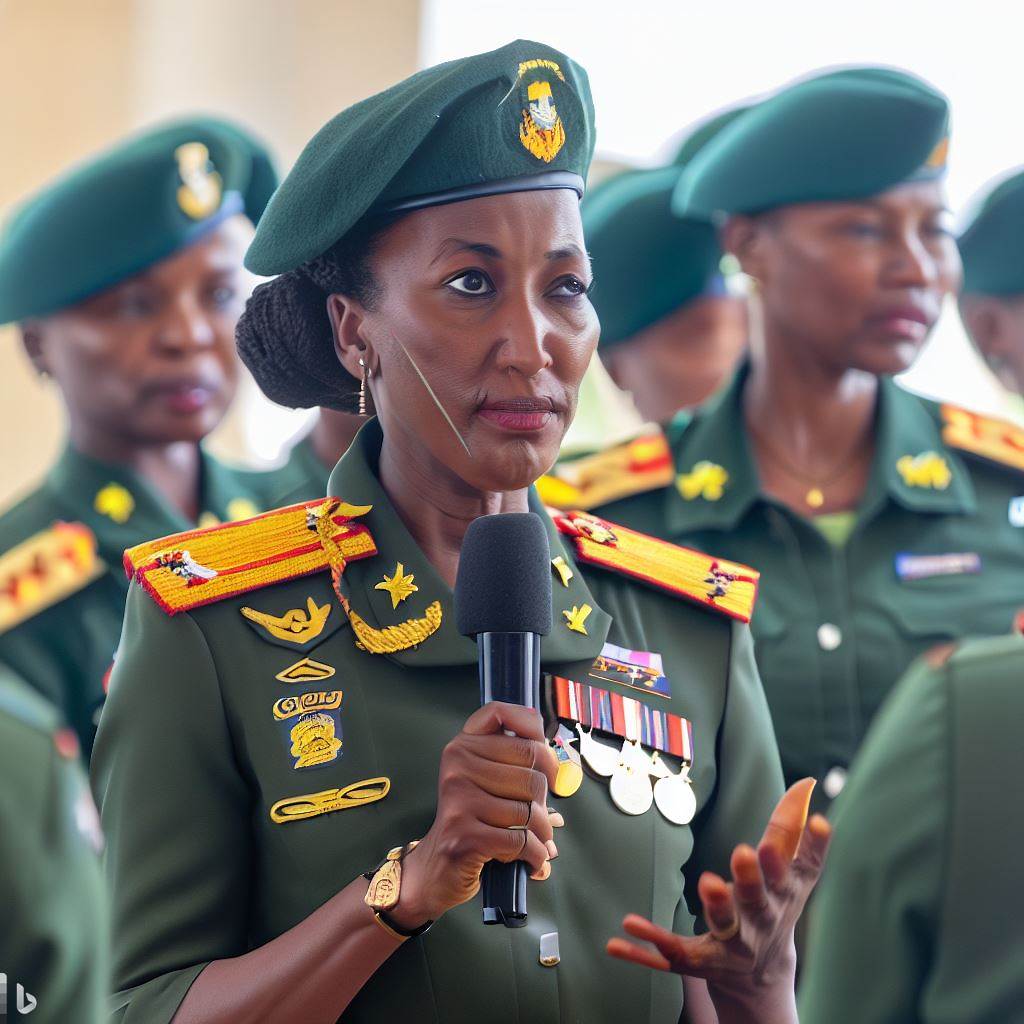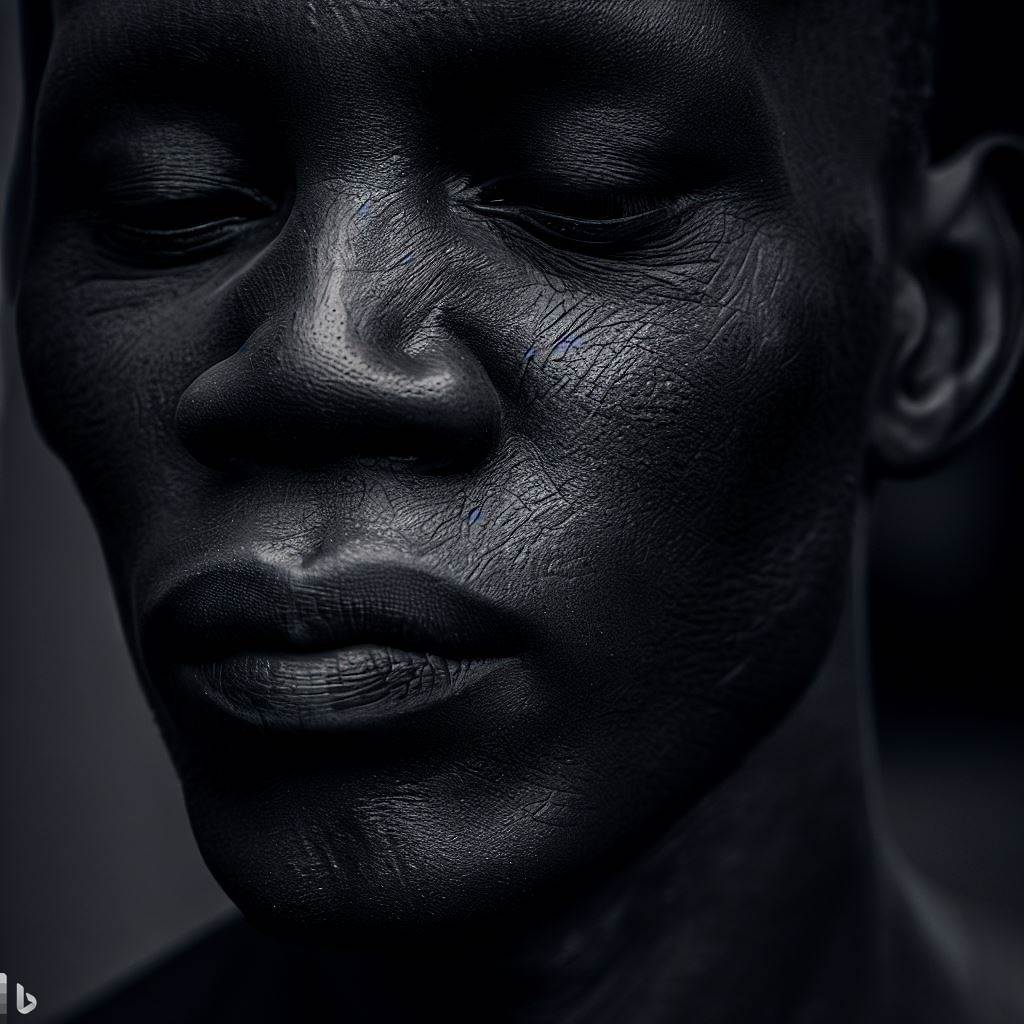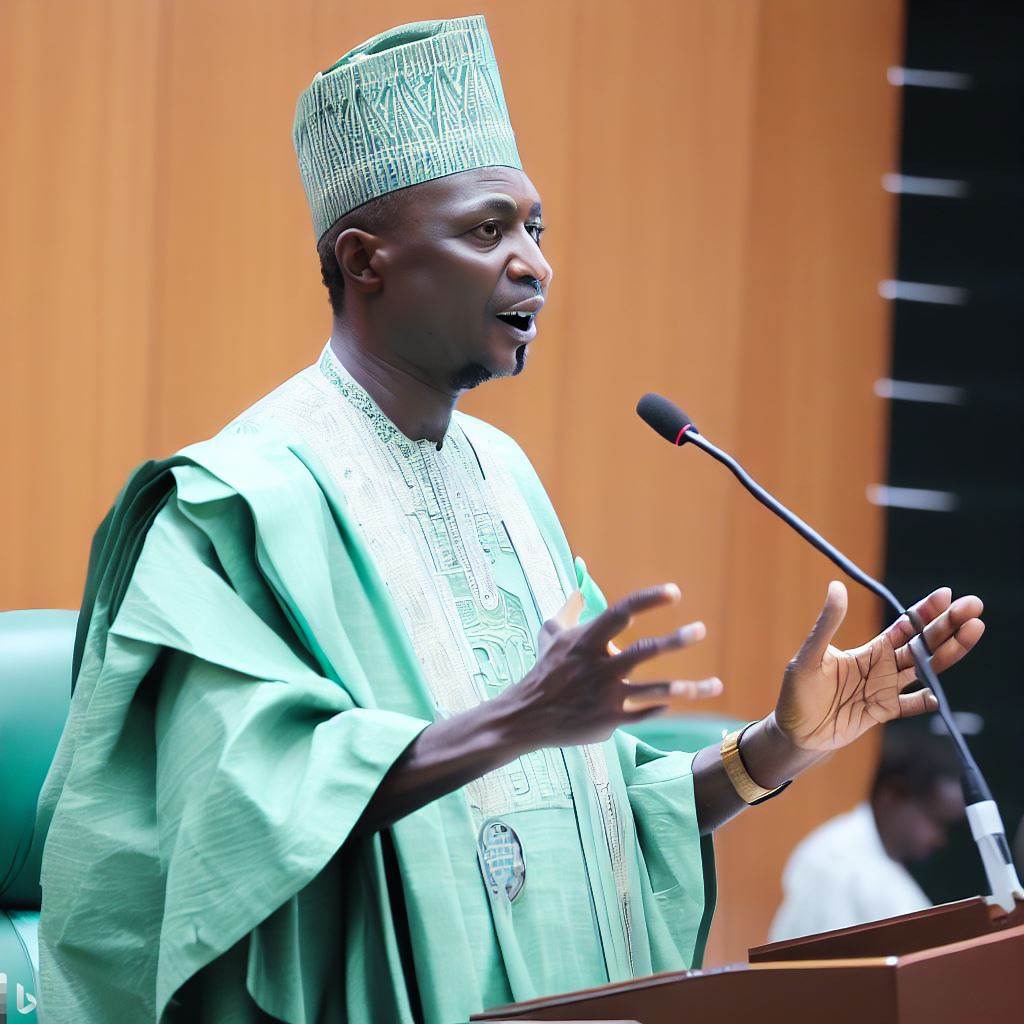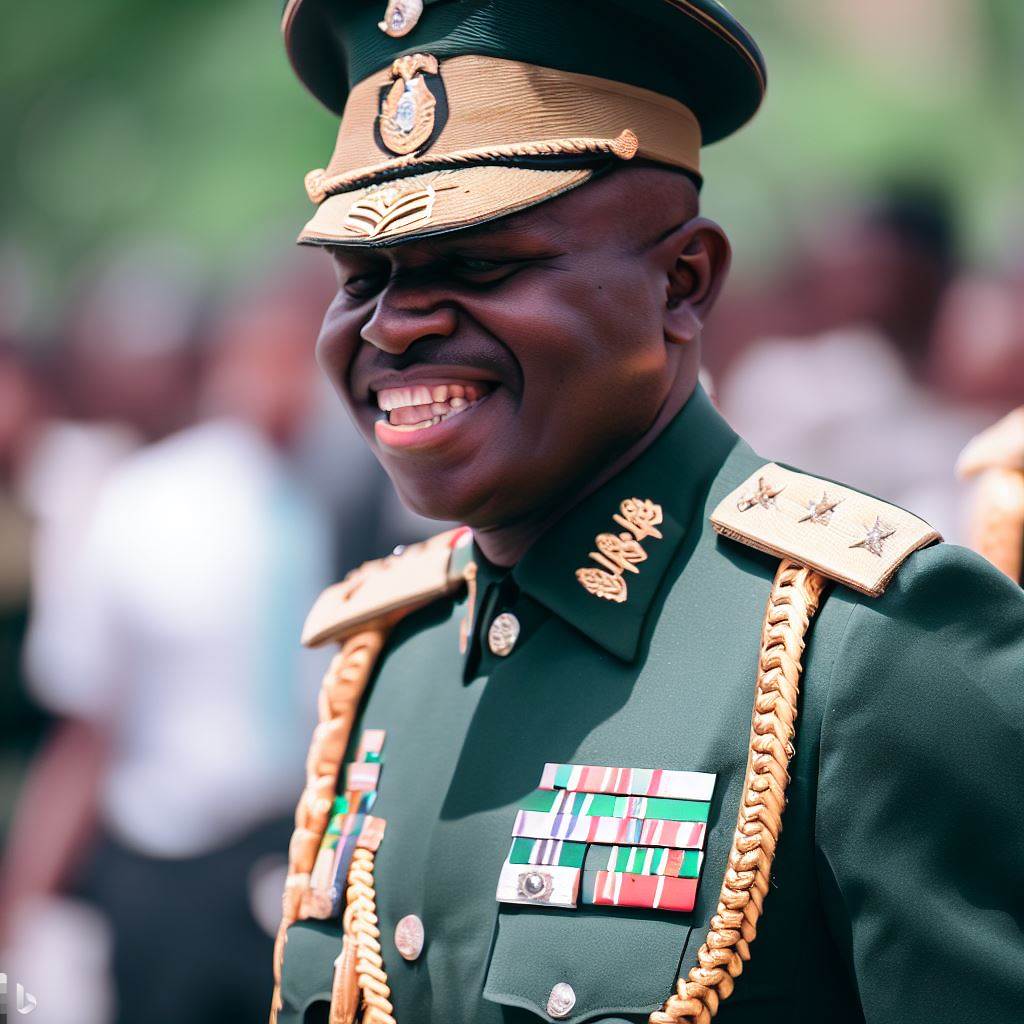Introduction
As a Nigerian Military Officer, I lead a life of discipline, honor, and unyielding loyalty to my country. The Nigerian military is a branch of the Nigerian armed forces responsible for the defense of the nation’s territorial integrity.
It is crucial to understand the life of a Nigerian Military Officer, as we play an essential role in safeguarding the security of our nation and protecting our citizens.
We are trained to be ready to defend our country at any time, which requires us to lead a life of discipline, sacrifice, and service.
The purpose of this blog post is to provide insight into what a typical day in the life of a Nigerian Military Officer entails.
From waking up early and having breakfast to going to bed late in the night, our days are filled with rigorous physical and mental training, engaging in various military operations, and other duties.
Read: The Evolution and History of the Government Structure of Nigeria
Background Information
Brief history of the Nigerian Military
The Nigerian military was founded in 1863 by the British colonial government, making it one of the oldest military forces in Africa.
Reasons for enlistment in the military
Enlistment in the Nigerian military is oftentimes due to a lack of other employment opportunities, a desire to serve one’s country, or for educational opportunities and career advancement.
Military ranks in Nigeria
Nigerian military ranks follow British military ranks, with the highest rank being the General. The other ranks, in descending order, are Brigadier General, Colonel, Lieutenant Colonel, Major, Captain, Lieutenant and Second Lieutenant.
Key duties of Nigerian Military Officers
As a Nigerian Military Officer, I have various responsibilities: protect the country’s integrity, maintain law and order, ensure peace, and safeguard citizens’ lives and properties.
My day begins at 5 a.m. with a morning drill and coffee. Duties include overseeing enlisted soldiers’ safety and discipline, conducting patrols for citizen security, attending strategy meetings to discuss security threats, and combating corruption within the military.
The workday often extends past 9-5, taking affirmative action when needed. The camaraderie among fellow officers is rewarding as we work towards a common goal.
Reviewing the day’s events helps improve effectiveness. Serving the nation brings immeasurable satisfaction and a sense of accomplishment.
Challenges exist, but the rewards make a difference in protecting and serving my country and its people.
Read: Analyzing The Architect’s Role in Nigeria’s Real Estate
A Day in the Life of a Nigerian Military Officer
Morning Routine
- Early morning starts with a strict physical training regimen.
- Military officers prepare necessary kit including weapons, ammunition, and protective gear.
Physical Training
- Officers participate in group exercises, which include jogging, push-ups, and stretching.
- Individual workouts, such as weight training and running, are completed according to personal fitness goals.
Actual Duty
- Patrols along the border are conducted to keep the community safe from illegal activities.
- It is the responsibility of the officers to respond quickly to any security threats infringing on public safety.
Relaxation Time
- Breaks for meals are allotted throughout the day, as nutrition is crucial to maintain strength and focus.
- Free time is granted depending on the dictates of command. Such moments are used in various ways, from reading to spending quality time with family and friends.
Evening Routine
- After duty, soldiers undergo a debriefing regarding the day’s duty, discussing tactics, challenges, and successes.
- Once debriefed, the military officer can unwind and relax, although many choose to continue training for personal growth and development.
Working as a Nigerian Military Officer is both challenging and rewarding, with a strict routine continuously pushing boundaries.
The role’s importance lies in protecting the public, serving as a beacon of hope that citizens can turn to in times of need.
Discipline, physical fitness, and quick decision-making drive the officer towards success, proving that the military plays a critical role in community development.
Being a military officer undoubtedly requires dedication, hard work, and a heart for service.
Read: Career Prospects for Young Architects in Nigeria
Challenges Faced by Nigerian Military Officers
A career in the Nigerian Military can be both rewarding and challenging.
Apart from the patriotic feeling of serving one’s country, there are various challenges that come with the job. Here are some of the challenges faced by Nigerian Military Officers:
1. Exposure to Dangerous Situations
Military officers in Nigeria are often exposed to dangerous situations while on duty.
These situations can range from confrontations with terrorists threatening national security to peacekeeping missions in foreign countries.
The soldiers are trained to face these situations but it can still be a mental and physical challenge.
It takes a lot of courage to confront dangerous situations and put one’s life on the line for the safety of others.
Military officers do this every day, and it takes a toll on their physical and mental health. They are constantly at risk of injury or even death, which can cause trauma.
2. Separation from Families
Military officers are usually away from home for extended periods of time.
This can be difficult for the families who have to cope with the absence of their loved ones. Most military officers miss important family events like birthdays, graduations, and holidays.
Furthermore, military officers are usually posted to different parts of the country or even to foreign countries. In such cases, the separation can last for months or even years.
Being away from family for so long can be emotionally draining and can take a toll on the officer’s performance while on duty.
3. Difficult Work Conditions
Working as a military officer can be physically demanding and exhausting. The long hours and rigorous training can be strenuous on an officer’s body.
What’s more, the weather conditions in some parts of the country can be harsh and unforgiving.
As a result of the difficult work conditions, military officers are at risk of developing health problems like hypertension, diabetes, and mental illnesses like depression and anxiety.
4. Emotional Stress
Military officers face a lot of pressure while on duty. Apart from the demands of the job itself, they also have to deal with the emotional stress of serving in the military.
They are often exposed to traumatic events that can leave lasting mental scars.
Emotional stress can manifest itself in different ways like sleep disorders, mood disorders, and substance abuse.
Military officers need a lot of emotional support in order to cope with the demands of the job and maintain their mental health.
Military officers in Nigeria face a lot of challenges in their line of work. Despite these challenges, they remain committed to the service of their country and deserve our respect and support.
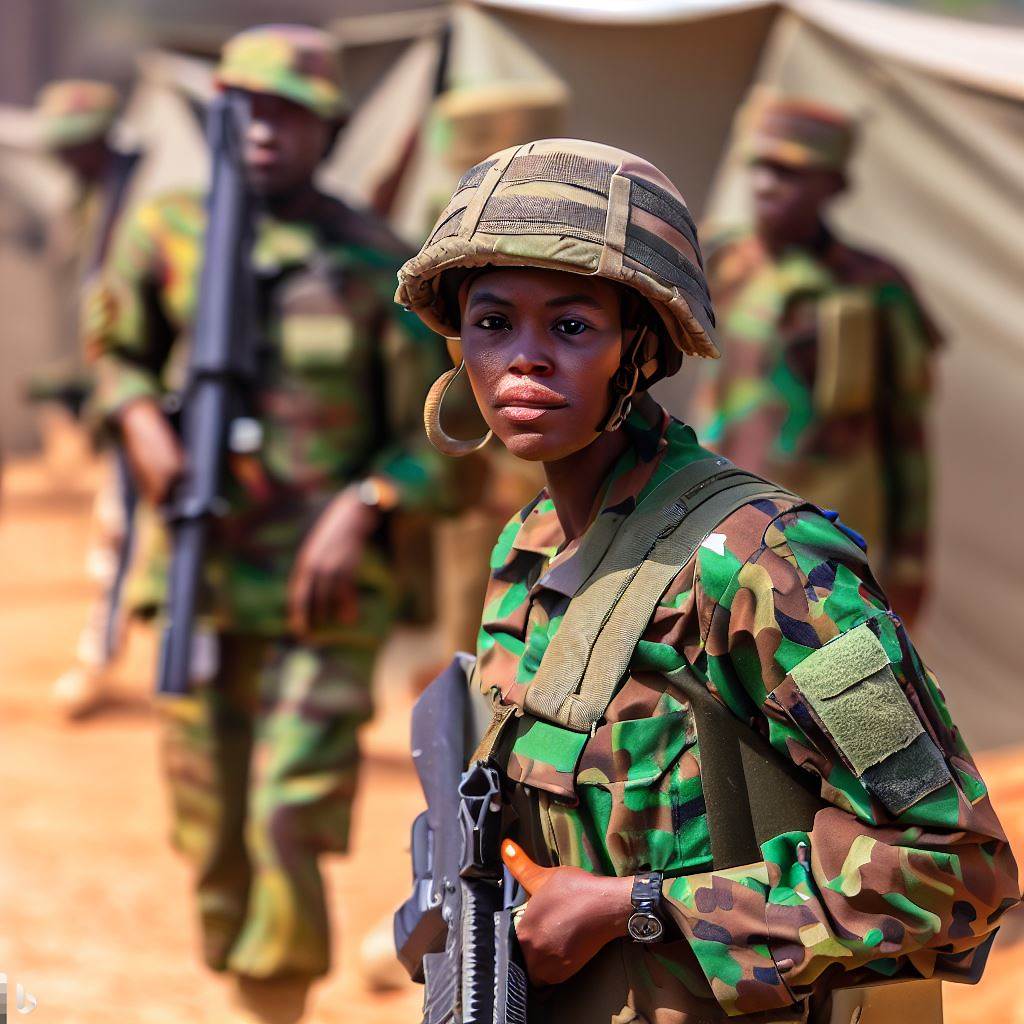
Reward and Benefits of Serving in the Nigerian Military
Despite the many challenges that Nigerian military officers face, there are many rewards and benefits that come with serving. Below are some of the key benefits that military officers enjoy:
1. Respect and Recognition
Society highly respects military officers as they protect the nation and defend democracy, receiving recognition in Nigeria.
2. Educational Opportunities
Another benefit of serving in the Nigerian military is the educational opportunities that are available.
The military offers a range of training programs and courses that officers can take advantage of. This includes courses in leadership, management, and technical fields.
3. Health and Welfare Benefits
One of the key benefits of serving in the military is the access to health and welfare benefits.
Military officers and their families receive free medical care at military hospitals and clinics. They also have access to a range of other health benefits, such as dental care and vision care.
4. Pension Benefits
When military officers retire, they receive a pension calculated from their salary and years of service. This provides officers with a stable source of income in retirement.
In short, serving in the Nigerian military is a challenging but rewarding experience.
From the respect and recognition they receive to the educational and health benefits they enjoy, military officers have a range of advantages that are not available to the general public.
Read: The Role of Nigerian Architects in Community Development
You Might Also Like: The Political Economy: Nigeria’s Leaders and Policies
Conclusion
A Nigerian Military Officer’s life, as explored, is a test of endurance, resilience, and courage.
Early mornings bring grueling drills. The day continues with strategic training and administrative duties. Nights are vigilant, safeguarding the nation. Living away from family, they bear enormous responsibilities for national security.
Let’s extend our support to these heroes. Appreciate them at public events. Donate to military-focused charities. Write them thank-you letters.
On a final note, our military officers are not merely soldiers; they are the nation’s backbone. Their sacrifices, often unspoken, deserve our respect and recognition.
Their commitment to protect and serve underscores the quintessence of patriotism. Acknowledge them, for they shoulder the weight of our peace.

